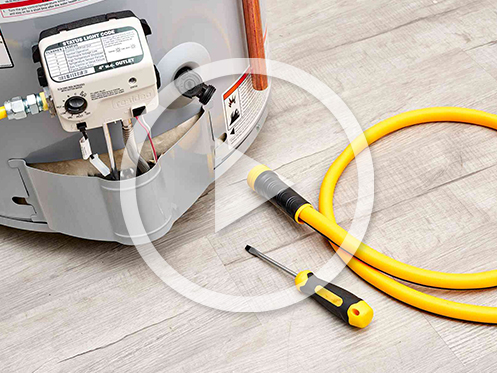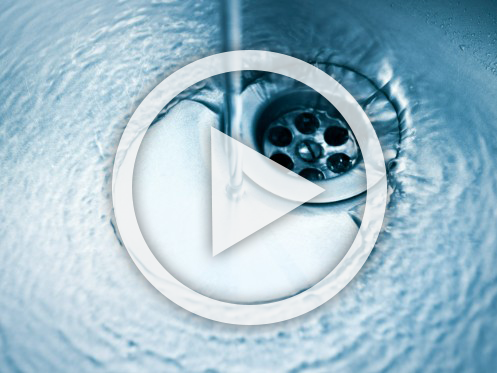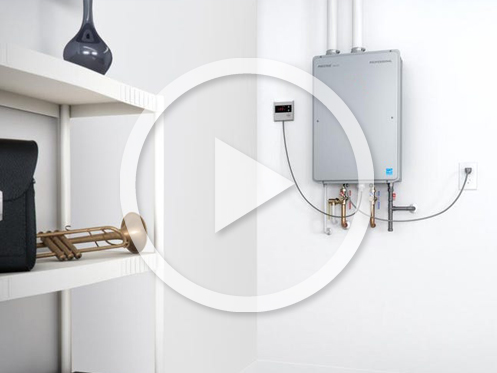Updated February 12, 2024
While you can’t control the weather outside, you can help protect your pipes from freezing when it’s cold. You can do several things to reduce the risk of freezing so that you don’t have to deal with a plumbing emergency, like a pipe bursting. Here are some tips that can prevent frozen pipes in your home.
Seal Air Leaks
Any drafts of cold air can cause your pipes to freeze. If there are any air leaks around your home, seal them so that your pipes don’t have exposure to frigid temperatures. Check your windows and doors to see if cold air is getting in when you close them. You should also check your foundation and walls for any drafts. Caulking, insulation, and weatherstripping are ideal for sealing these air leaks. For more significant cracks or gaps, the foam insulation that expands is a good choice for closing off these cold air entry points.
Insulate Exposed Pipes
One of the best ways to protect your pipes is to ensure adequate insulation. This is especially important for pipes exposed to extreme cold, as the insulation allows them to retain heat. Insulation materials specifically for pipes are available, such as fiberglass and foam. Focus on areas that don’t have heat, such as basements, attics, and crawlspaces. Make sure to insulate the cold and hot water pipes.
Drip Your Faucets
The pressure inside your pipes can increase the risk of them freezing, but allowing them to drip can alleviate the pressure. You only need a slight drip for this to be effective. Ideally, when the night temperatures get below freezing, this method should be implemented. Ensure you are dripping water from the cold and hot water faucets.
Maintain Consistent Indoor Temperatures
When the weather is freezing, you must keep your home at a consistent temperature. Even if you are away from home for a few days, keep a consistent temperature so that your pipes don’t freeze. You want your thermostat at a minimum of 55 degrees Fahrenheit. It’s also a good idea to open up your cabinet doors so that the heat in the rooms can reach your pipes.
Basement and Attic Insulation
The pipes in your basement or attic tend to be more prone to freezing because people usually don’t have heat going to these areas. Insulating these spaces will keep them warmer. This not only protects your pipes, but it can also help to keep the rest of your home warmer.
In addition to insulating these areas, inspect them for any gaps that cold air can penetrate. In the attic, pay special attention to the ceiling beams. Seal these areas to create a warmer attic if you see any light coming through.
Heat Tape
Heat tape helps provide heat to your pipes, making them less likely to freeze. Professionals will usually use a candy cane pattern to ensure complete protection of your pipe. You can use heat tape on all your pipes, but it’s essential for your pipes to be exposed to the cold and those on exterior walls. You must follow the manufacturer’s instructions to benefit the most from the tape. Some heat tapes come with thermostatic control. This allows the tape to turn the heat on when it gets cold enough for the pipes to freeze.
Pipe Heating Cable
This type of cable you wrap around your pipes to help prevent them from freezing. They give controlled heat so that the pipes don’t get overly hot. Be sure to consider the length and diameter of your pipes so that you choose the correct size. The cable should cover the entire pipe because any sections exposed to cold temperatures could freeze. Ideally, you want a professional to install this cable because some installations can be complex. Proper connection and placement are essential to benefit from heating cables.
Disconnect Your Outdoor Hoses
Outdoor hoses are exposed to freezing temperatures, making them more prone to freezing and bursting. Disconnect your water hose and drain any excess water from the hose and faucet. Store the hose in a place where temperatures are stable. You might also consider installing a frost-free hose bib. These types of bibs work to prevent freezing by automatically draining water.
There is also an insulating foam or a faucet cover that you can use for your outdoor faucets. This gives them an extra layer of protection when the weather is freezing.
Thermostatic Mixing Valves
You can install these valves on your water heater to help regulate and control the water temperature, decreasing the chances of freezing. Setting the temperature on your water heater to a higher temperature can also be beneficial when the weather drops below freezing.
Close Crawlspace Vents
If you have a crawlspace, some vents usually help regulate the temperature when the weather is warm. However, once winter approaches, it’s best to close these vents. This will help warm up the space so that pipes in the area are less likely to freeze. Sealing any other openings to further insulate the space against the cold would be best.
Know the Shut-Off Valves
If a pipe freezes, you should turn off the water supply as soon as you notice it. This can prevent flooding in case the pipe bursts. Label the individual valves throughout your home so that you can quickly identify the valve that you need to turn off. It’s also a good idea to familiarize yourself with the main shut-off valve for your water just in case you need to turn this off, too.
Call a Professional
If you need to repair your pipes or install anything to prevent them from freezing before winter hits, call our professional plumbers. They will ensure that you do everything correctly to get the most protection. They can also make additional recommendations to reduce the risk of frozen pipes. This time of year is also ideal for scheduling annual plumbing inspections and maintenance services.
Plumbing Professionals
Preventing your pipes from freezing is essential to keep your plumbing system in good condition. Our team knows what it takes, and we can help you winterize your pipes and take the steps necessary to maintain them when the weather drops below freezing. We can also help with other plumbing, heating, cooling, and electrical needs.
Our family-owned business provides honest services, high standards, and fast response times. Check out our Google reviews to see what customers are saying about us.
Call Golden Rule today when you need professional plumbers to protect your pipes.
Contact Us Today for Plumbing Service!
If you found this post helpful, check out some other budget-saving tips:



